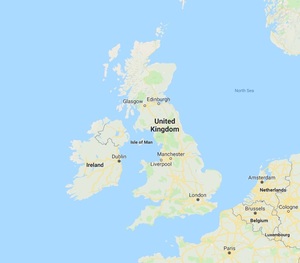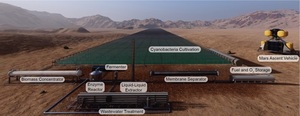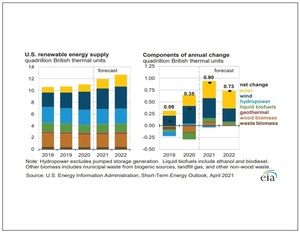UK BEIS selects biomass projects for carbon capture competition
Energy Disrupter
ADVERTISEMENT
The U.K. Department for Business, Energy and Industrial Strategy on May 24 announced 24 project have been selected for phase one of its direct air capture and greenhouse gas (GHG) removal technologies competition. Nearly half of those projects involve biomass.
The competition launched in June 2020, offering up to £100 million of new research and development funding to help develop direct air capture technologies in the U.K. As part of that effort, the competition aims to support the development of greenhouse gas removals (GGR) technologies to help them achieve commercialization. Phase two of the competition will support further development of the most promising phase one technologies.
Biomass-related projects selected under phase one include:
Biohydrogen GHG removal demonstration—Led by Advanced Biofuels Solutions Ltd., along with Progressive Energy Ltd. and University College London, the project aims to optimize the production of biobased hydrogen with CCS. Project partners will develop a design and project delivery plan for a demonstration plant that will capture 1,800 metric tons of CO2 annually.
Bio-waste to biochar via hydrothermal carbonization and post-carbonization—The project, led by the University of Nottingham with partners CPL Industries and Trent Green Power, aims to establish the feasibility and optimize the process of producing biochar from biowaste. Digestate residue will be treated by hydrothermal carbonization (HTC) at a pilot plant. The resulting biocoal will be treated in a pilot plant to establish the quality of the biochar for sequestration that can be obtained by post-carbonization.
Mersey Biochar: Carbon negative community energy—Led by Severn Wye Energy Agency with Pure Leapfrog and PyroCore, the project will develop pyrolysis technology to incorporate enhanced carbon capture capacity, and to produce a range of marketable outputs, including biochar, carbon products for construction and heat for a local district heating network.
CCH2: Carbon capture and hydrogen production from biomass—KEW Technology has a gasification technology that converts biomass into hydrogen-rich gas. The project will develop designs for additional modules that will upgrade the gas to produce high-purity hydrogen and CO2 streams.
Negative emissions gasification—Led by Drax Corp., the project will further develop gasification as a future carbon negative technology.
The Biochar Network: A road to demonstration and beyond—Sofies U.K. will work with several industry and research partners to create an integrated biochar network consisting of one of the largest forestry and sawmilling businesses in the U.K. and a cooperative of more than 2,000 dairy farms.
Integration of biochar and enhanced mineral weathering carbon capture technologies into linear infrastructure projects—Arup, in conjunction with Costain and the Universities of Edinburgh and Newcastle, will explore the feasibility of using biochar and enhanced rock weathering for application on a large-scale infrastructure project.
BIOCCUS—Led by Ricardo U.K. Ltd., the project involves the design of carbon capture technology that includes biochar production, combined-heat-and-power (CHP) generation, and carbon dioxide capture, utilization and storage, using undried waste wood from sustainably sourced domestic timber.
REVERSE COAL: Development of a long-term solution to store and abate carbon whist generating food—Lapwing Energy Ltd., with assistance from University of Lincoln and the U.K. Centre for Ecology and Hydrology, will use short willow coppice on rewet degraded peat soils to produce biochar via pyrolysis.
Circular greenhouse gas removal (GGR) solution utilizing biochar produced from low-grade biomass—Led by Capchar Ltd. with partners Biochar Project Services Ltd. and U.K. Hardwoods Ltd., the project aims to demonstrate that low-grade biomass can be converted into biochar and sequestered in U.K. soils.
InBECCS—Peel NRE and Bioenergy Infrastructure Group will develop and design a 20-tons-per-day CO2 capture demonstration plant that is underpinned by C-Capture technology and a 28.5 MW biomass gasification unit.
Additional information, including a full list of phase one project, is available on the U.K. BEIS website.
















